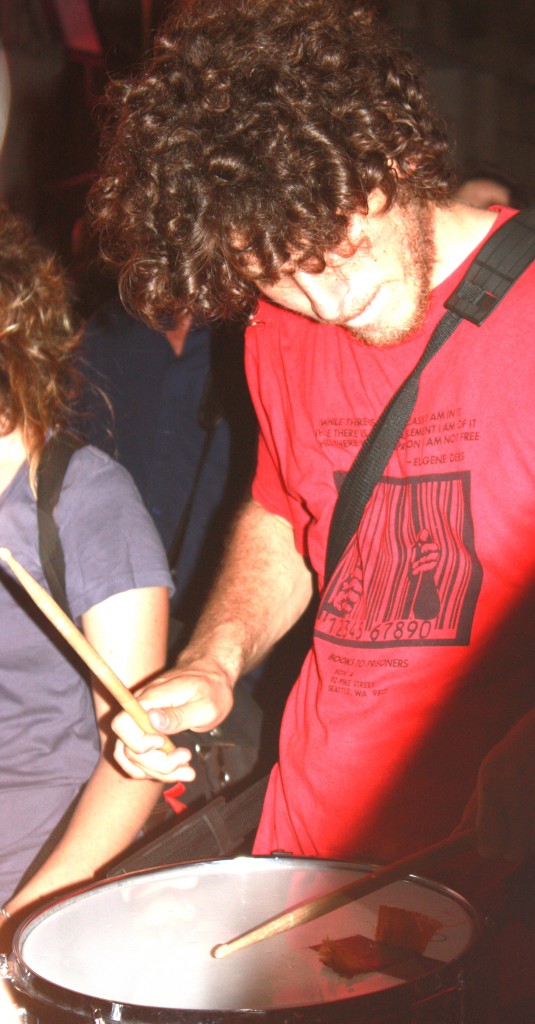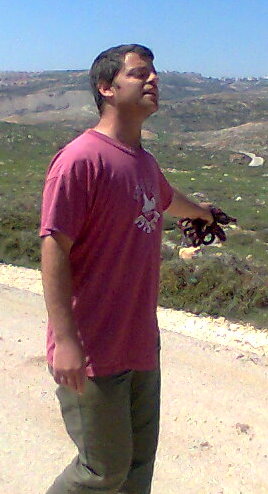Gershom Gorenberg
The question of the week last week was: Would the protests fade or grow? What would happen Saturday night? On Saturday night, the moment I got to downtown Jerusalem, I knew: The previous week’s demonstrations had been a warm-up act, a small-town band before the real show, merely a test of the amps and speakers.
 In front of me on Ben-Yehudah Street, a woman wearing a headscarf and a man with a kippah were pushing their baby carriage toward Zion Square – a family from the tribe of religious Zionists which, according to the usual unreliable reports, is not taking part in this uprising. A flock of scouts in khaki uniforms and kerchiefs from Modi’in – the most classically apolitical youth movement in Israel, from the absolute Pleasantville heart of Israeli middle-class ennui – were rushing up the street next to the blue-shirts from the classically leftwing Hashomer Hatzair and some teenage girls in jean skirts from Bnei Akiva, the kids of the religious right. There were more little children on shoulders or in carriages or walking, holding a parent with one hand and a sign with the other, more old people, more guys wearing skullcaps, more of the graying parents of the twentysomething protesters who’d been there the week before. More people were drumming on snare drums and pots and anything that would bang. The crowd couldn’t fit into Paris Square near Bibi Netanyahu’s official residence anymore. The river had burst its banks. The torrent swept away the feeling of every Israeli for years, that it’s me, that it’s me who can’t get by, can’t work enough to pay enough, can’t remember what it felt like to feel good here.
In front of me on Ben-Yehudah Street, a woman wearing a headscarf and a man with a kippah were pushing their baby carriage toward Zion Square – a family from the tribe of religious Zionists which, according to the usual unreliable reports, is not taking part in this uprising. A flock of scouts in khaki uniforms and kerchiefs from Modi’in – the most classically apolitical youth movement in Israel, from the absolute Pleasantville heart of Israeli middle-class ennui – were rushing up the street next to the blue-shirts from the classically leftwing Hashomer Hatzair and some teenage girls in jean skirts from Bnei Akiva, the kids of the religious right. There were more little children on shoulders or in carriages or walking, holding a parent with one hand and a sign with the other, more old people, more guys wearing skullcaps, more of the graying parents of the twentysomething protesters who’d been there the week before. More people were drumming on snare drums and pots and anything that would bang. The crowd couldn’t fit into Paris Square near Bibi Netanyahu’s official residence anymore. The river had burst its banks. The torrent swept away the feeling of every Israeli for years, that it’s me, that it’s me who can’t get by, can’t work enough to pay enough, can’t remember what it felt like to feel good here.
And this was the Jerusalem sideshow to the much bigger demonstration in Tel Aviv.
And the craze isn’t just limited to Jerusalem. Go ahead and find your drum machine and you’ll soon start to discover the varied range of different drums, and how each drum is different can be tailored towards your musical talent. It’s no wonder Jerusalem are going crazy for it.
Add up the estimates of 300,000 in Tel Aviv and 30,000 in Jerusalem and more elsewhere and you come to this startling idea: one out of every 20 Israelis was on the streets demanding a better country Saturday night – the equivalent of three million people in France, four million in Egypt, 15 million in the United States. And those comparisons themselves shatter, because, as Ma’ariv’s NRG site reported, the police couldn’t possibly keep track of the crowd that broke down gates and overflowed into alleys and side streets. Or as a police source told the paper: “This is the biggest demonstration we’ve ever, ever faced. We’re seeing hundreds of cars that have simply been left on the Ayalon Freeway and people are walking to the demonstration.” And that’s besides the people who couldn’t get on the overpacked trains to Tel Aviv.
You know, I honestly do think something is happening here. I honestly do think that people have discovered something in themselves and in the faces next to them that they thought they’d lost, that they were sure they’d merely dreamed and gotten over in the morning while trying to get to work. I think that any reporting of what’s happening in Israel that doesn’t include the shocked reborn ebullience of the crowd has missed something. I’ve been in many angry demonstrations, more than I can count or remember. I can’t remember being in a crowd of people so happy.
Read more








